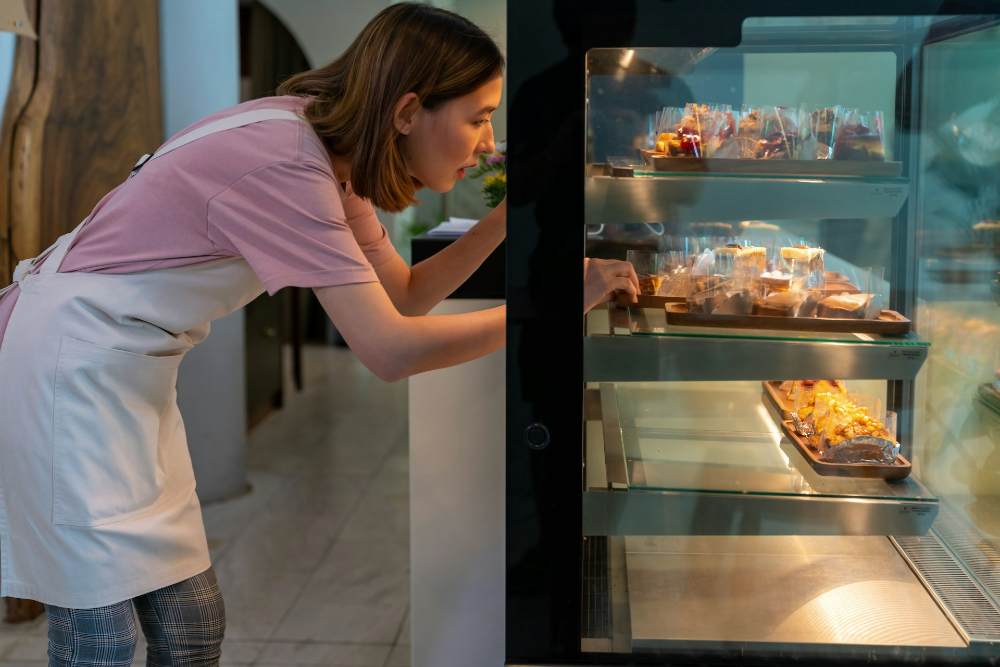Commercial Refrigeration Best Practices For Food Businesses
Are you prepared to unwind while reading valuable advice on managing your food business? Commercial refrigeration is about more than just keeping things cold. It is also about maintaining quality, guaranteeing security, and, most importantly, feeding picky patrons. The opportunity in the American food market is huge, with its worth reaching $ 1,084.7 billion in 2022.
Imagine a busy kitchen smelling of freshly made food. Your refrigeration system works silently in the background to maintain freshness and reduce waste. Being proficient in refrigeration is essential for success. You might operate a posh food truck, a busy restaurant, or a small cafe. We will share the best practices to take your catering company to the next level.
You will learn everything from expertly organizing the refrigerator to storing food at the proper temperature. So, get ready to set out on a refrigeration perfection journey.
Regularly clean and maintain refrigeration units
The first step is to give your refrigeration units the royal treatment. It entails regular cleaning and maintenance. Treat your appliances like they are having a spa day. You need to check for spills or leftovers that might jeopardize hygiene as you clean the exterior and interior regularly.
Plan regular deep cleaning sessions to eliminate built-up dirt and dust from fans and coils. It prolongs the life of your refrigerators and keeps them looking immaculate while ensuring optimal performance.
Monitor temperature levels
Effective refrigeration relies heavily on temperature control. As a rule, you must keep a close eye on the temperature to maintain the freshness and integrity of the ingredients. You can purchase reliable thermometers.
Install them throughout the refrigerator to detect any temperature variations. Make sure your ingredients are keeping their freshness without the potential of freezing or spoiling by regularly cross-checking the readings.
Organize shelves to optimize airflow
Your refrigeration units guide the airflow to keep the pantry on point. Make sure your shelves are arranged in a way that promotes adequate airflow. You must refrain from packing too much in.
It can interfere with the flow of air and cause uneven cooling. Consider it as literally giving the ingredients you use a breath of fresh air.
Upgrade compressors when necessary
Be ready to upgrade your equipment when the time comes because it is vital to preserve the quality of ingredients. Replacing your refrigeration compressor is essential at some point to meet the needs of a busy kitchen.
Modern, environmentally friendly compressors can save you money over time by using less energy. Both your budget and ingredients stay in check while you benefit from this win-win situation.
Seal containers tightly
Something as simple as sealing containers tightly can improve your commercial refrigeration process. Your ingredients are safe from cross-contamination and freezing damage. Use an appropriate sealing technique for the best outcomes.
You can also purchase airtight receptacles of the highest caliber. Also, train your kitchen staff on the value of always closing the lids. This simple but essential step keeps the taste of your carefully chosen ingredients pure and unadulterated.
Conduct routine inspections
Periodic checks may seem laborious for time-pressed kitchen staff members. However, consider them to be your refrigeration units’ safeguarding measures. Make time for routine examinations to identify any possible concerns before they develop into more serious ones.
You can examine the thermostat, pay attention to any strange noises, and verify the door seals for damage. The appliances are attempting to connect with you. So, you need to pay attention. You can avoid the inconvenience of unexpected malfunctions by taking quick care of small issues.
Train staff on proper storage procedures
Power comes from knowledge, so you must give your kitchen staff thorough training on correct storage techniques to empower them. All the people in your culinary team should be aware of how crucial it is to keep the cold chain intact from the time components enter the kitchen until they are served.
You should instruct them on the subtleties of shelf arrangement, the importance of temperature regulation, and the technique of container sealing. An informed staff is your first line of defense against food waste and quality degradation.
Conclusion
A combination of routine maintenance, close observation, and a pinch of tech know-how are required to perfect the art of business refrigeration. Your refrigeration units are the custodians of your food preparation creations, not just appliances. Handle them carefully, and they will return the favor by keeping your ingredients’ integrity and freshness intact. Prepare yourself, adhere to these best practices, and watch your refrigerators become the unnoticed heroes of your food industry.

